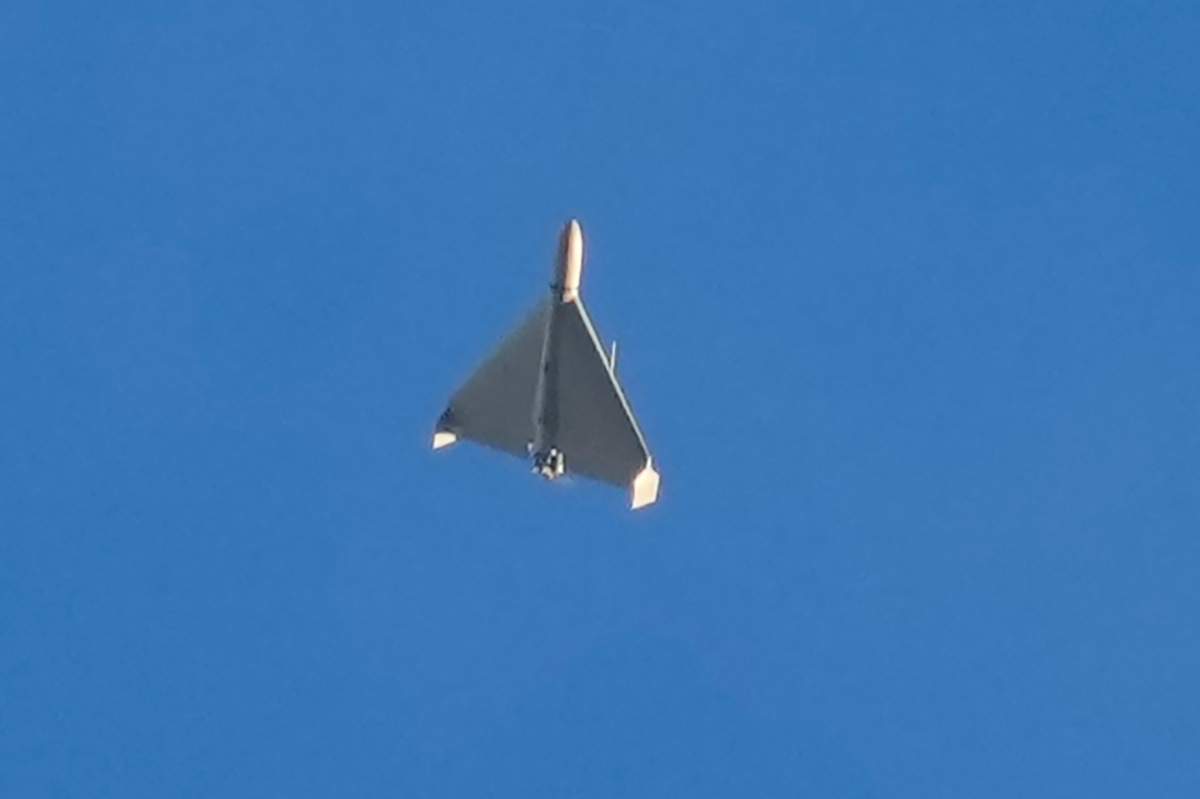Prime Minister Justin Trudeau is “extremely concerned” over a report Canadian-made parts have been discovered in Iranian drones used by Russia in its war on Ukraine.

Trudeau shared his worries with reporters in Ingersoll, Ont., Monday after the Globe and Mail reported on Sunday the discovery by a non-profit organization, Statewatch. Its “Trap Aggressor” investigation detailed last month that an antenna manufactured by an Ottawa-based Tallysman Wireless was featured in the Iranian Shahed-136 attack drone.

The drones have been used recently by Russia in Ukraine as Moscow increases its strikes on the country’s energy and civilian infrastructure.
“We’re obviously extremely concerned about those reports because even as Canada is producing extraordinary, technological innovations … we do not want them to participate in Russia’s illegal war in Ukraine, or Iran’s contributions to that,” Trudeau said.

Get daily National news
“We have strict export permits in place for sensitive technology that are rigorously enforced, and that’s why we’ve been following up with this company, that’s fully cooperating, to figure out exactly how items that we’re not supposed to get into the hands of anyone like the Iranian government actually ended up there.”
The Shahed-136 is manufactured by Shahed Aviation Industries, one of two Iranian drone makers Ottawa sanctioned last month for reportedly supplying Russia with its lethal drones. After denying reports it was supplying Moscow, Iran acknowledged for the first time on Nov. 5 it had sent Moscow drones before the Feb. 24 war began.

It denied continuing to supply drones to Russia. Ukrainian President Volodymyr Zelenskyy has accused Iran of lying, previously saying Kyiv’s forces were destroying at least 10 of its drones every day.
Aside from its Iranian-made engine, the Shahed-136 consists entirely of foreign components, Statewatch said in its report. It cited Ukrainian intelligence managing to identify more than 30 European and American companies’ components, with most parts coming from the United States.
Drones like the Shahed are packed with explosives and can be preprogrammed with a target’s GPS coordinates. They can nosedive into targets and explode on impact like a missile, hence why they have become known as suicide drones or kamikaze drones.
Shaheds are relatively cheap, costing roughly US$20,000 each — a small fraction of the cost of a full-size missile.
Drones “provide a critical capability” to exploit vulnerabilities in defences, and their use may be a prelude to a new phase in the conflict, U.S. Army Lt.-Col. Paul Lushenko previously told Global News.
Gyles Panther, president at Tallysman, told the Globe the company is not “complicit in this usage” and “is 100-per cent committed” to supporting Ukraine.
Ottawa is working to understand how the parts ended up in the drones, and wants to “ensure” incidents like this don’t “happen again in the future,” Trudeau said.









Comments
Want to discuss? Please read our Commenting Policy first.